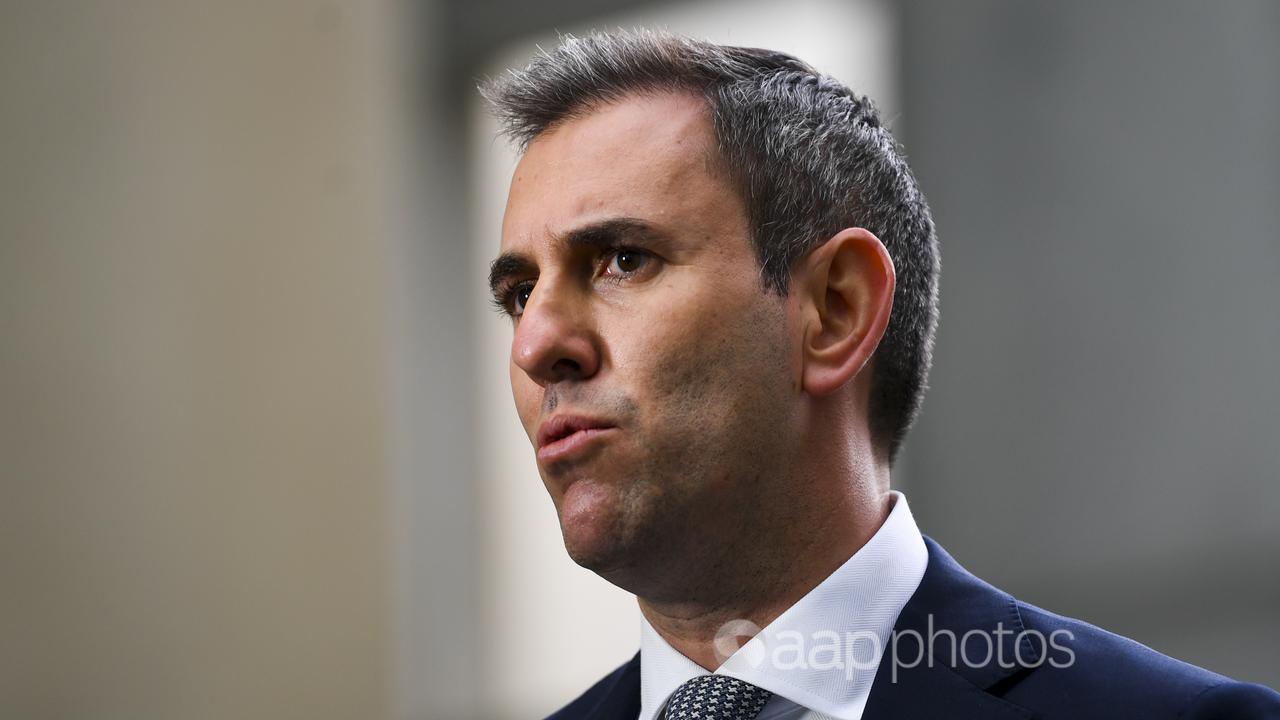Labor shadow treasurer Jim Chalmers has drawn a comparison between the cost of rapid antigen tests (RATs) and laboratory PCR tests, claiming that RATs cost “a few bucks wholesale” but PCR tests cost “about $100”.
The claim that PCR tests cost $100 each is inaccurate but has some basis in fact. Prior to January 1, 2022, the listed Medicare fee for a PCR test undertaken by a private test provider was $100.
However, because the service was bulk-billed, the actual cost to taxpayers was $85 per test for private test providers and $42.50 per test for public test providers. Since January 1, government payments to all test providers have been cut by 15 per cent, meaning Dr Chalmers’ claim is also out of date.
The Department of Health told AAP FactCheck in an email that test providers have been paid an average of $82 for each Commonwealth-funded COVID-19 PCR test carried out since the beginning of the pandemic. The average cost is likely to fall due to the lower provider payments implemented on January 1, 2022.
On January 7, Dr Chalmers appeared on Nine’s Today show, where he said: “… A test that costs a few bucks wholesale in big numbers is a far better investment from the Commonwealth than this economic carnage that we are seeing at the moment in our workforces … and versus a $100 PCR test which is being provided for free.”
He later made the same claim on PCR test costs in a tweet that included an excerpt from the TV appearance.
A spokesman for Dr Chalmers told AAP FactCheck the $100 figure was sourced from an ABC News article published in August 2021, which discussed Medicare rebates paid to test providers. Therefore, AAP FactCheck has also focused solely on the amount paid by the federal government to providers.
The ABC article cited by Dr Chalmers correctly states the Medicare rebate for COVID-19 tests undertaken by private providers was raised from $28.65 to $100 early in the pandemic. However, that does not mean $100 was the actual cost to the government.
Health services subsidised by the Australian government are listed in the Medicare Benefits Schedule (MBS), which catalogues rebate fees for all eligible medical procedures. At the time of writing, the MBS lists two types of pathology service for COVID-19 PCR tests: one item for privately owned pathology businesses, and another for public pathology providers such as pathology services in public hospitals. A separate MBS item for testing of asymptomatic essential workers ceased on January 1, 2022.
Prior to January 1, 2022, the MBS rebate listed for PCR tests undertaken by private providers was $100 while the rebate for public providers was listed as $50.
A Department of Health spokeswoman told AAP FactCheck that COVID-19 PCR tests must be bulk billed under the MBS. This means that the provider claims the test fee directly from the government, however providers are only paid 85 per cent of the full MBS rate as their rebate. Therefore, prior to January 1, private providers were paid $85 per test while public providers were paid $42.50 per test.
The spokeswoman told AAP FactCheck in an email that, as at January 12, the federal government had spent “over $2.23 billion on approximately 27.1 million PCR tests”. This works at around $82 for each test. Private providers account for the vast majority of those tests, the department said, carrying out approximately 24.6 million tests compared to around 1.8 million tests undertaken by public pathology providers.
However, that average cost for new tests has decreased due to a reduction in PCR test rebates announced in December 2021. Starting from January 1, the MBS fee for PCR tests was reduced by 15 per cent for all test providers, meaning private pathology labs are paid a reduced rate of $72.25 for each bulk-billed PCR test while public pathologists are paid $36.15 per bulk-billed test. The reduced fee structure was already in place when Dr Chalmers made his claim on January 7.
At the time of writing, Australians can access a free PCR test at public testing centres and from bulk-billing medical practices. From January 24, eligible Commonwealth concession cardholders can access up to 10 RATs over a three-month period by presenting their concession care at participating community pharmacies.
AAP FactCheck previously debunked a false claim from Prime Minister Scott Morrison that only two countries were providing rapid tests to citizens for free.
The Verdict
Prior to January 1, 2022, the maximum Medicare rebate for a PCR test undertaken by a private test provider was $100, the figure quoted by Mr Chalmers. However, because the tests had to be bulk-billed, the actual cost to the taxpayer was $85 per test. Public pathologists received a lower rate of $42.50 per test.
Since January 1, these fees have been cut by 15 per cent, meaning the current maximum cost is $72.25 per test. The federal government has paid test providers an average fee of $82 for each COVID-19 PCR test performed since the beginning of the pandemic.
Mixture – The claim includes accurate information but also significant errors or problems.
AAP FactCheck is an accredited member of the International Fact-Checking Network. To keep up with our latest fact checks, follow us on Facebook, Twitter and Instagram.
All information, text and images included on the AAP Websites is for personal use only and may not be re-written, copied, re-sold or re-distributed, framed, linked, shared onto social media or otherwise used whether for compensation of any kind or not, unless you have the prior written permission of AAP. For more information, please refer to our standard terms and conditions.


















